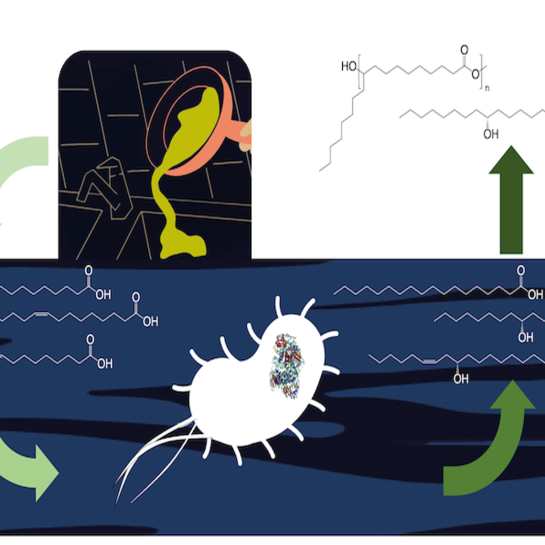Enzyme Promiscuity for the Sustainable Polymer Industry
DR. Antonino Biundo. Department of Biosciences, Biotechnology and Environment,
University of Bari, Italy
With the increasing interest in the reuse of waste products for the production of valuable compounds through the creation of the so-called “industrial symbiosis”, green chemistry and “white biotechnology” are crucial for manufacturing bio-based compounds ranging from fine chemicals, biofuels and polymers using renewable resources following a circular bioeconomy approach. Our society relies on polymeric compounds, as they can find applications in different fields ranging from packaging, cosmetics, automotive and medicine. In 2018, only ca. 2% out of the 360 million tons of produced polymers derived from renewable resources. Bio-based polymers represent an important section of bioeconomy. The development of biorefinery approaches is of great relevance for the sustainable production of valuable compounds. In accordance with circular economy principles, waste cooking oils (WCOs) are renewable resources and biorefineries feedstocks contributing to a reduced impact on the environment. Commonly, this waste is wrongly disposed of into municipal sewage systems creating problems for the environment and increasing treatment costs in wastewater treatment plants. Regenerated WCOs intended for the production of biofuel, could be further valorized through a chemo-enzymatic approach to produce hydroxy fatty acids, which can be further used in polycondensation reaction for polyester production.

